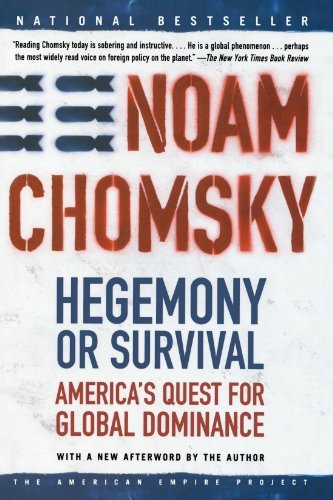
9-11
Book Description
Unchecked power, twisted narratives, and the world forever changed—this is the reality exposed within "9-11" by Noam Chomsky. As the dust settled from one of history's most harrowing events, a whirlwind of political machinations and media manipulation emerged, painting a chilling portrait of fear and control. Chomsky unearths the stark truths behind the rhetoric, dissecting the fabric of deception that cloaked a nation’s reaction. With a fearless lens, he challenges perceptions and confronts the stark realities lurking behind the headlines. When the dust clears, who truly wields power in the aftermath of chaos?
Quick Book Summary
"9-11" by Noam Chomsky offers a powerful critique of the U.S. government's response to the September 11th terrorist attacks and the ensuing global implications. Chomsky examines the motivations behind U.S. foreign policy, placing the events in a broader historical context of American interventionism and the perpetuation of violence. Through incisive analysis, he challenges mainstream media narratives and popular rhetoric, exposing how fear and nationalism often serve to consolidate unchecked power. Chomsky argues that the United States' pursuit of war and security, largely justified through moral grandstanding, ultimately undermines both global stability and democratic values. The book invites readers to scrutinize official stories, question the drivers of policy, and consider the wider consequences of actions taken in the name of security.
Summary of Key Ideas
Table of Contents
U.S. Interventionism and Double Standards
Chomsky begins by situating 9/11 within the longstanding tradition of U.S. international intervention. He challenges American exceptionalism by illustrating how military and economic interventions abroad often foster environments ripe for resentment and violence. Chomsky argues that while the attacks were unprecedented in their scale within U.S. borders, similar tragedies have befallen other nations as a result of American policies, making the subsequent outrage and moral righteousness appear selective and contradictory.
Media Manipulation and Public Discourse
A key theme is the manipulation of media narratives in the wake of 9/11. Chomsky dissects how mainstream U.S. media shaped public sentiment by reinforcing government rhetoric and marginalizing dissenting voices. By lionizing American suffering and glossing over the country's own interventions, the media contributed to a narrative that legitimized a broad “War on Terror” and framed retaliatory violence as justifiable and necessary, discouraging deeper critical engagement.
The Cycle of Violence and Retaliation
The cycle of violence and retaliation is explored as Chomsky warns against the logic of vengeance that ensued after 9/11. He critiques the rush to war in Afghanistan and later Iraq, contending that such responses did not address root causes but instead perpetuated instability and suffering. Instead of breaking the cycle of violence, these actions deepened it, laying the groundwork for further conflict, radicalization, and erosion of global norms.
Moral Responsibility and Global Justice
Chomsky emphasizes moral responsibility and calls for introspection, urging Americans and their leaders to view international events from the perspectives of others. He advocates for ethical consistency, arguing that condemning terrorism must entail also acknowledging and seeking redress for harm caused by Western policies. By fostering empathy and self-critique, nations can begin to chart a path towards genuine reconciliation and security.
Consequences of Power and Security Policies
Finally, Chomsky interrogates the lasting consequences of security-driven policies on democracy and global justice. He reflects on how fear has been leveraged to expand executive power, restrict civil liberties, and justify international aggression. In this light, "9-11" serves not just as a diagnosis of political responses to tragedy, but as a caution against the temptations of unchecked power and the dangers of sacrificing principles in the name of security.
Download This Summary
Get a free PDF of this summary instantly — no email required.





